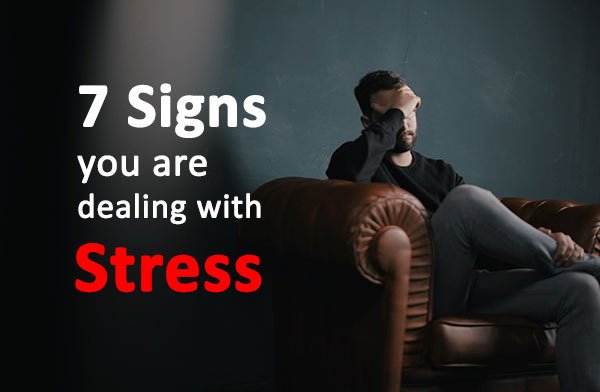Talk to a Psychologist for Online Counselling
Book Appointment 100% Private & Secure
Convenient, 100% anonymous, safe, certified professional counseling online.What is anger?
Anger is a feeling that is characterised by feelings of hostility, upset, or aggression. It is a normal emotion that everyone experiences at some point in their lives, and it can be triggered by a variety of circumstances. Anger can be a response to perceived threats, injustice, or frustration. It is important to note that while anger is a normal emotion, it can also be unhealthy if it is not managed properly. When people experience intense or prolonged periods of anger, it can lead to negative outcomes such as conflicts with others, poor decision-making, and negative physical health effects. It is important to find healthy ways to manage and express anger in order to maintain healthy relationships and overall well-being.


What is anger management?
Anger management is a set of techniques and strategies that can help a person identify and manage their anger. Anger is a normal and healthy emotion, but it can become problematic if it is intense, uncontrolled, or expressed in unhealthy ways. Anger management techniques can help a person learn how to recognize the signs of their own anger and respond to it in a more healthy and productive way.
This can involve techniques such as relaxation techniques, deep breathing, and cognitive-behavioural therapy, which can help a person understand and change the thoughts and behaviours that contribute to their anger. In general, the goal of anger management is to help a person feel more in control of their emotions and to express their anger in a way that is appropriate and constructive.
Why anger is bad?
Anger is a normal emotion that everyone experiences from time to time. It can be a healthy and appropriate response to certain situations, such as feeling frustrated or upset when faced with injustice or mistreatment. However, when anger becomes excessive or difficult to control, it can have negative consequences on both an individual’s mental and physical health, as well as on their relationships with others.


Some of the negative effects of excessive anger can include:
- Physical health problems : Anger can lead to an increase in heart rate, blood pressure, and other stress hormones, which can have a negative impact on physical health over time. Chronic anger has been linked to a higher risk of heart attack, stroke, and other health issues.
- Mental health problems : Anger can also contribute to mental health problems such as anxiety, depression, and substance abuse. It can also make existing mental health problems worse.
- Relationship problems : Anger can strain relationships with friends, family, and coworkers, leading to conflict and possibly even the loss of important relationships.
- Legal problems : In some cases, uncontrolled anger can lead to aggressive or violent behaviour, which can result in legal problems.
It’s important to learn healthy ways to manage anger, such as through relaxation techniques, communication skills, and seeking support from a mental health professional. This can help you avoid the negative consequences of excessive anger and lead a happier, more fulfilling life.
Is anger management effective?
Anger management can be an effective way to help individuals better manage their anger and reduce the negative impact it may have on their lives. There are various techniques and strategies that can be used as part of an anger management program, including:
- Using relaxation techniques, such as deep breathing, to calm down when feeling angry
- Learning to communicate effectively and assertively, rather than aggressively
- Developing problem-solving skills to deal with conflicts or challenges in a healthy way
- Examining and changing negative thought patterns that contribute to anger
- Anger management can be done individually or in a group setting, and can be helpful for individuals who have difficulty managing their anger in a healthy way.
It is important to note, however, that anger management is not a one-size-fits-all solution and may not be effective for everyone. It is also important to seek help from a mental health professional if you are experiencing extreme or uncontrolled anger that is causing significant problems in your life.


10 best anger management tips
- Take a break: If you’re feeling overwhelmed or angry, it can be helpful to take a step back and take a break from the situation. This can give you time to calm down and think more clearly about how you want to respond.
- Practise deep breathing: Deep breathing can help you relax and calm down when you’re feeling angry. Try taking slow, deep breaths in through your nose and out through your mouth.
- Use positive self-talk: Instead of dwelling on negative thoughts and feelings, try to reframe them in a more positive way. For example, instead of thinking “I can’t stand this,” try thinking “I can handle this and find a solution.”
- Identify the cause of your anger: Try to understand what is causing your anger. Is it something specific that happened, or is it a build-up of stress and frustration? Understanding the cause of your anger can help you find ways to address and manage it.
- Find healthy ways to express your anger: It’s important to find healthy ways to express your anger rather than bottling it up or lashing out. This might include talking to a friend, writing in a journal, or finding a physical outlet like going for a run or hitting a punching bag.
- Practice relaxation techniques: There are many relaxation techniques that can help you manage your anger, such as meditation, yoga, or progressive muscle relaxation. Find what works for you and make it a regular part of your routine.
- Use humour: Humour can be a great way to diffuse a tense situation and lighten the mood. If you’re feeling angry, try to find the humour in the situation or tell a joke to yourself or someone else.
- Seek support: It can be helpful to talk to a trusted friend, family member, or therapist about your anger. They can offer perspective and help you find healthy ways to cope with your emotions.
- Learn to forgive: Holding onto grudges and resentment can fuel anger and lead to ongoing stress and conflict. Practice forgiveness as a way to let go of negative emotions and move forward.
- Seek professional help: If you’re having difficulty managing your anger on your own, it may be helpful to seek the guidance of a mental health professional. They can offer more personalised strategies and support to help you better manage your anger.
How does counselling help in anger management?
Counselling can be an effective way to manage anger because it can help you:
- Identify the root causes of your anger: Counselling can help you explore the underlying issues and emotions that contribute to your anger. This can include past experiences, unresolved conflicts, or unmet needs.
- Develop healthy coping strategies: Counselling can help you learn new ways to manage your emotions and express your needs in a healthy, constructive way. This can include techniques like deep breathing, relaxation exercises, or assertiveness training.
- Communicate effectively: Counselling can help you learn how to communicate your feelings and needs more effectively, which can reduce the likelihood of misunderstandings and conflicts that can lead to anger.
- Improve your relationships: Counselling can help you understand and address any problems in your relationships that may be contributing to your anger. This can include learning how to set boundaries, express your needs, and resolve conflicts in a healthy way.
Overall, counselling can help you learn how to recognize and manage your anger in a healthy way, so it doesn’t negatively impact your relationships or overall well-being.


Get help at OnlineCounselling4U for anger management issues
At OnlineCounselling4U, we have the best therapists, and mental health experts, psychologists who will help you manage your anger in a more constructive way. They will provide you with various effective coping strategies to channelise anger while ruling out the root cause
It’s a great resource for individuals looking to manage their anger through counselling. It’s important to note that online counselling can be just as effective as in-person counselling, and it can be a convenient option for those who are unable to access in-person counselling. Additionally, having a variety of options such as phone calls, video calls, and chat sessions can make it easier for individuals to find a mode of counselling that works best for them. It’s great that you have a team of experienced therapists and mental health experts available to provide support and guidance.


Get the best counselling services right from the comforts of your home in online mode as you can vouch for our counselling services via phone calls, video calls and chat sessions.
Call us to book a session today.
Contact us at +91 9811335150
Email us – info@onlinecounselling4u.com
Follow us on Facebook or Instagram
Talk to a Psychologist for Online Counselling
Book Appointment 100% Private & Secure
Convenient, 100% anonymous, safe, certified professional counseling online.

